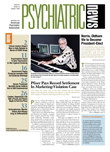Data from poison control centers throughout the United States suggest that, over the past decade, more teens misused prescription drugs intended to treat attention-deficit/hyperactivity disorder (ADHD), and some did it with serious consequences.
A study published in the July Pediatrics examined information on ADHD-drug-related calls to poison control centers throughout the United States from 1998 to 2005. Jennifer Setlik, M.D., and colleagues at the Cincinnati Children's Hospital Medical Center, analyzed the trends of intentional abuse or misuse of prescription drugs indicated for ADHD treatment among people aged 13 to 19 years. The study findings were derived from the National Poison Data System, a database maintained by the American Association of Poison Control Centers and containing data on calls to 61 regional poison control centers throughout the United States.
The number of calls related to prescription ADHD medication abuse for nonmedical reasons by 13- to 19-year-olds increased by 76 percent from 1998 to 2005 as recorded in the database. The rate of increase in this category was far steeper than that for the total of all substance-abuse-related calls for the general public and the teenaged population. During the same period, ADHD prescriptions for youth aged 10 to 19 nationwide increased by 80 percent, suggesting a parallel between access and abuse.
The rising trend in ADHD medication abuse, at least cases that were serious enough to result in a call to a poison control center, was primarily driven by prescription amphetamine/dextroamphetamine medications. These calls increased more than fivefold—from 71 calls in 1998 to 409 in 2005. Calls related to illicit amphetamine use and amphetamine prescriptions for non-ADHD reasons were excluded from the study. Meanwhile, the number of prescriptions for amphetamine salts to treat ADHD increased from 1.5 million to 3.6 million for teenagers.
The number of methylphenidate-related calls to poison control centers decreased from 246 in 1998 to 172 to 2005 while the total number of prescriptions for methylphenidate increased from 2.7 million in 1998 to 4.3 million in 2005.
Among the ADHD-medication-related calls, 65 percent contained information about patients' outcomes. In 42 percent of these cases, the teenagers experienced clinically significant events, including the deaths of three females and one male.
Because poison control centers record only the cases reported to them by individuals or health care professionals who are seeking information or advice, the rates in this study do not reflect the true rates of abuse and do not include serious cases treated in emergency rooms, the authors acknowledged. However, the trends of increased stimulant abuse represent a broad trend in the teen population, particularly regarding amphetamine salts. The authors speculated that this observation may be the result of either the increased number of abusers or increased severity of abuse, or both.
Surveys have indicated that many teenagers share their prescription drugs for ADHD with their friends and schoolmates, the authors noted, which could account for the growing abuse as more prescriptions are written.
An abstract of “Adolescent Prescription ADHD Medication Abuse Is Rising Along With Prescriptions for These Medications” is posted at<pediatrics.aappublications.org/cgi/content/abstract/124/3/875>.▪
